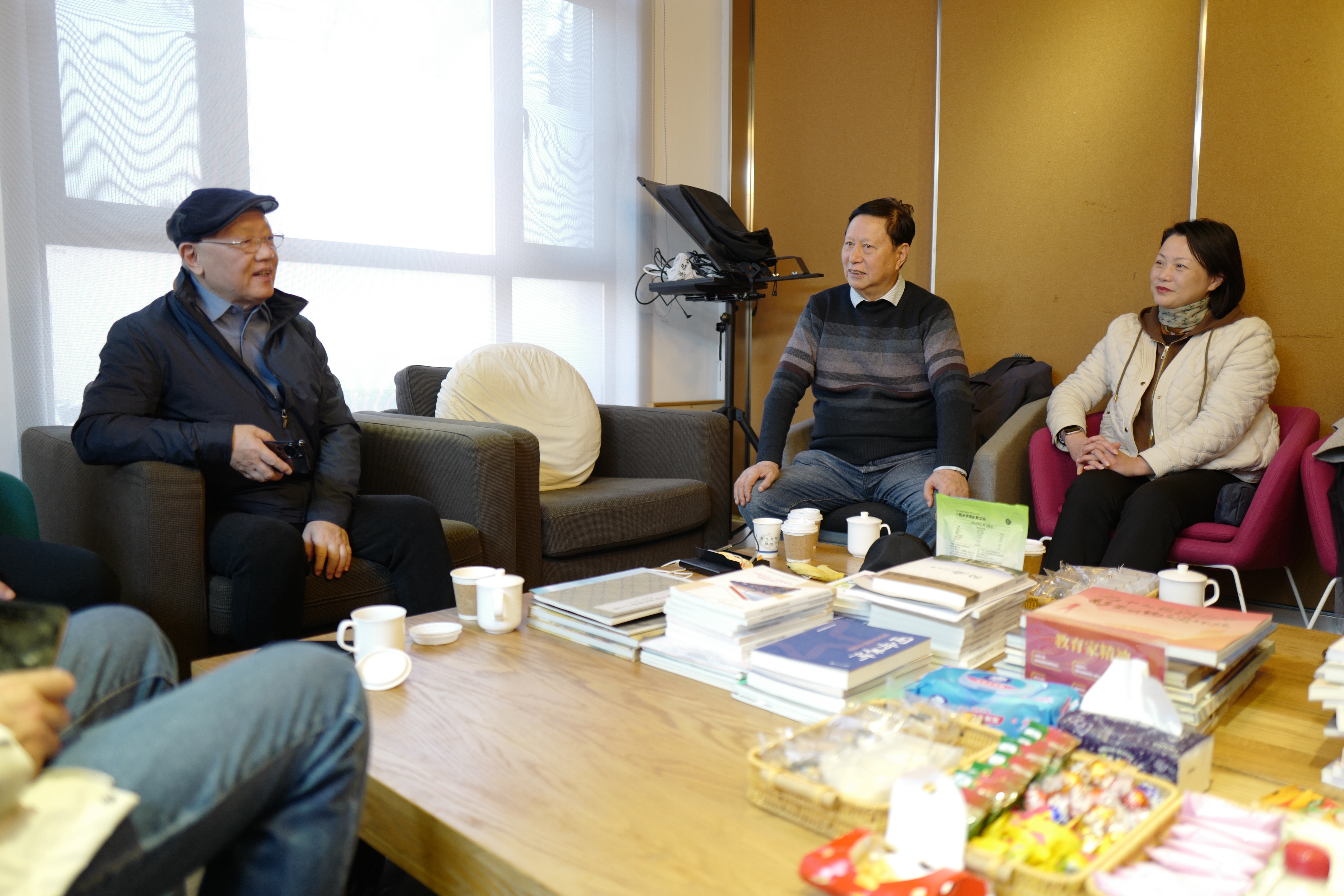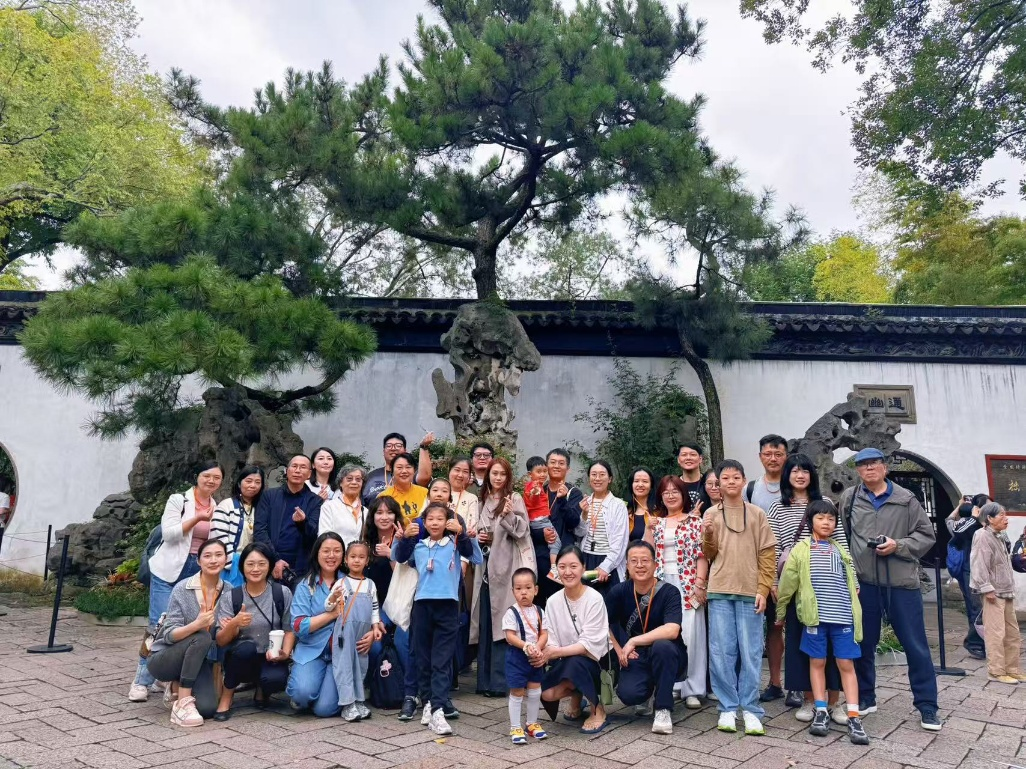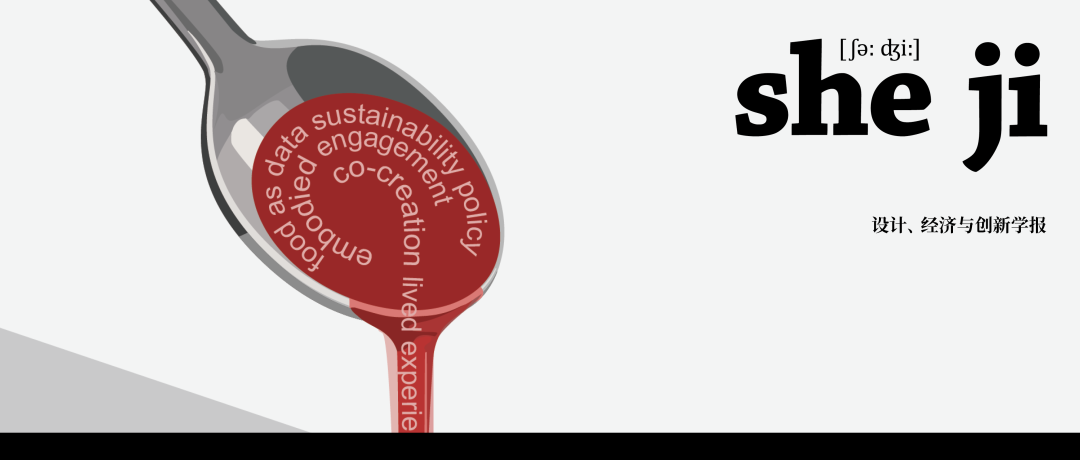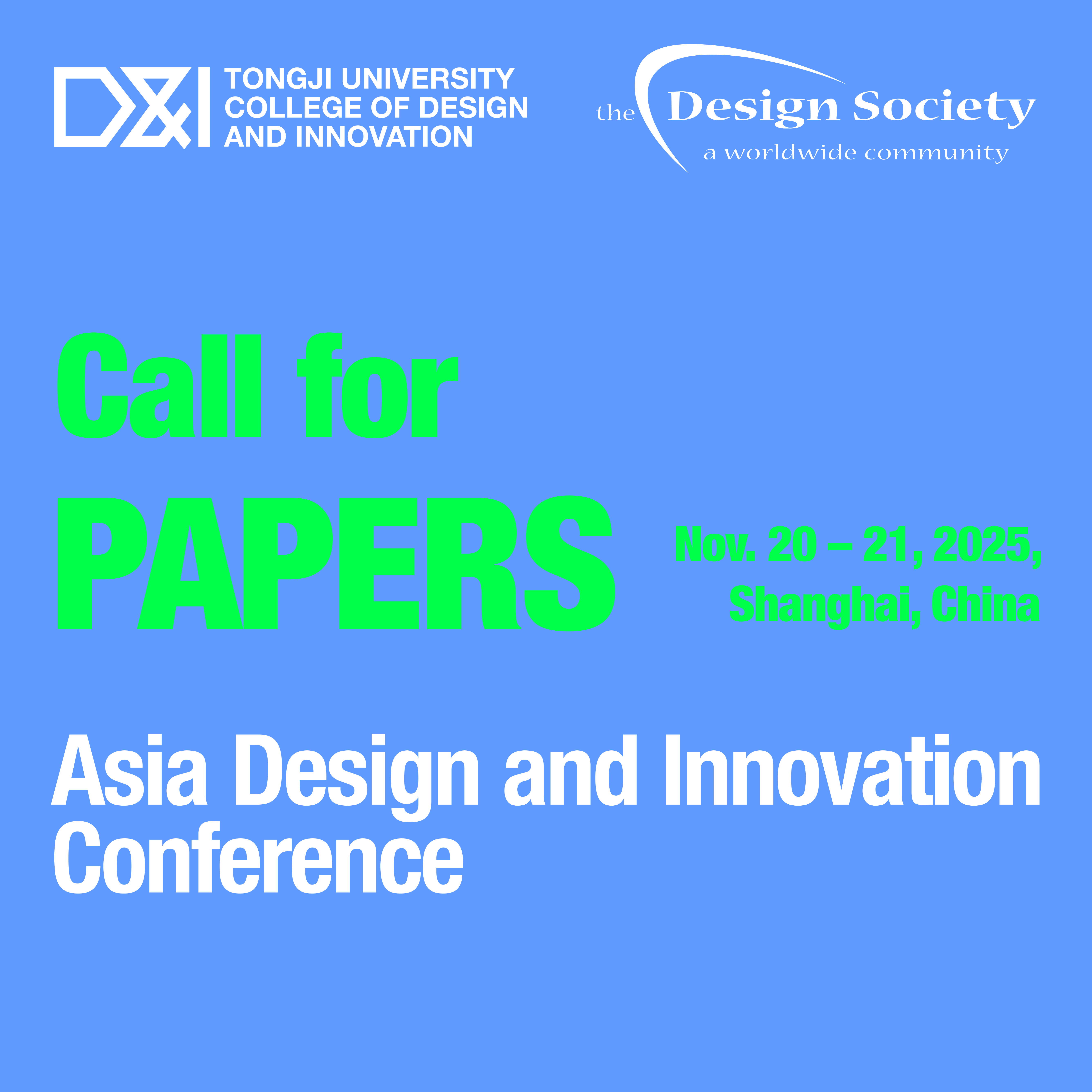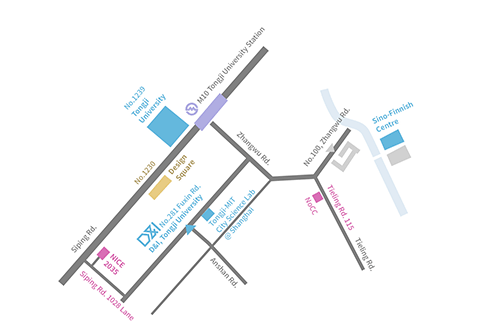Emerging Practices:
Design Research and Education Conference 2014
October 13, 2014
College of Design & Innovation, Tongji University, Shanghai, China
Main theme: #Developing#
In this new era, design must, and is currently being, redefined. Social and economic changes impel designers to “think bigger.” For the design discipline, the expanding roles and tools of design make it more possible than ever to connect and to integrate multi-disciplinary knowledge within the social and economic context, and to tackle real world problems. Moreover, during the course of blurring the boundaries between professions and developing new approaches, design explores the new frontier by dealing with matters that center around goodness, happiness, and wellbeing of the entire human community. Design is immersed in values that were not even recognized a couple of decades ago, and the legitimization of design will now be measured more on how it can enable us to survive on this planet. Such emerging design practices and thoughts raise the bar for design knowledge, in terms of its breadth, depth, and complexity. The areas where they start to grow, especially the intersections between design professions, approaches, and values, merit a closer examination.
Based on the above observation, Tongji University’s College of Design and Innovation (Shanghai, China) hosted the first Design Research and Education Conference titled “Emerging Practices” in 2012. This conference, since its very beginning, is devoted to exploring the new practices, values, and approaches arising from, or influential to, design and design education. It is an arena in which these three concepts are explored by facilitating heated discussions respectively or in an integrative manner. We sincerely invite scholars, researchers, practitioners, educators, and design students, interested in the possibilities the wide spectrum of design offers, to participate and contribute their ideas. This conference has been developed into a regular unit of Tongji Design Week, during which a series of design research- and practice-based events are held in October every year.
We are pleased to announce here that the third Emerging Practices: Design Research and Education Conference will be held on October 13th, 2014. This conference will be organized as an interactive form, providing discussions that will be able to facilitate participants to further develop their original ideas and proposals. Full papers will be completed after the conference and will be compiled into the conference proceedings with an ISBN number.
Introduction to Emerging Practices 2014:
The idea of ‘developing’ is controversial. On the one hand, the word developing often implies inferiority, and is used as a synonym of underdeveloped. On the other hand, developing is the present participle of to develop, which literally means to bring out the capabilities or possibilities of something and a process of evolving toward a more advanced or effective state.
For instance, a developing country is defined in terms of a lower standard of living, less-developed industrial base, and lower Human Development Index in comparison with other developed countries. This is a prevailing understanding of the term developing. Arguably, the status of being ‘developing’ can nevertheless be a great asset to a country. It can provide energy and space to initiate a series of sustainable paradigm shifts, including reshaping values, changing rules of action, ways of living and production, and ultimately reforming the whole society and economy. The rapidly changing dynamics in developing countries make major transformations possible.
In this sense, the word developing can be used to frame a situation that is still in progress, full of potentialities and energy, and at the same time in need of inputs, skills, and resources. The term developing may refer to countries, communities, policies, services, knowledge, tools, methods, and many more. All these constitute an energetic landscape, upon which discussions on emerging practices of design become challenging, yet more meaningful.
This conference aims to facilitate discourses that reflect on the prevailing acceptance and implicit interpretation of the notion of ‘developing’. Further, it will explore the strengths, challenges, and opportunities that the status of being developing offers, in various scenarios of emerging practices driven by design.
What are the strengths of being developing? What are the shared challenges and values between the practices conducted in the developing context and those grounded in the developed context? How can the established/prevailing approaches be adapted to the state of being developing? How can the practices deeply contextualized in the developing scenarios inspire the approaches toward innovation?
Call for proposals:
We now invite researchers, practitioners, teachers and students from different domains to contribute papers that enrich the understanding of best practices of “developing” related to the following sub-themes:
#developing communities
- enabling and empowering
- connectedness and relationality
- modeling social awareness
#developing economies
- alternative economies and emerging business models
- best practice of transition from product to service
- the global landscape of creative industries
#developing research
- emerging forms of academic publication
- linking design journals and practitioners
- challenges and strategies
#developing education
- re-designing curriculum
- challenges and lessons learned
- leadership and entrepreneurship
#developing openness- the nature of open innovation
- managing fuzziness in opening design
- ownership and open: a paradox?
#developing explorations
- critical reflection on alternative futures
- innovation inspired by nature
- new ways of making
- digital media
If you are interested, and have experiences and viewpoints to share, you are invited to be part of the construction process of these future scenarios by presenting ideas and participating in in-depth discussions. Outcomes derived from the discussion will be summarized and exhibited at the end of the conference. It is hoped that this conference will serve as an intermediate, yet stimulative stage, for contributors to further develop their ideas based on the co-construction.
Conference language:
English
Submission requirements:
Please choose a relevant sub-topic and submit a short description of your research project using the word template (you may find here:
 Proposal template.docx) by sending it via email at emergingpractices@tongji.edu.cn.
Proposal template.docx) by sending it via email at emergingpractices@tongji.edu.cn.
The description will include: 1) a title; 2) a short text running about 750 words; 3) 2 images; and 4) 3-5 keywords. In addition, a short biography of 50 to 100 words, including author information such as your full name, title, affiliations, and email address, should be enclosed. (We will translate your document into a poster in A2 size and print it out to be used at the conference discussion session.)
How it works:
This conference will be a real interaction among the participants. If proposal is accepted, you will join the discussion table where you will be asked to make a 5 mins presentation and then to participate in some provided team-activities aimed to facilitate the group discussion. The presentations, discussions, and activities will lead to outcomes at two levels. First, the observations made and perspectives articulated during the process will be highlighted at the end of the conference in the form of a small presentation and exhibition. Second, the participants will be able to use this highly interactive and co-constructive process to consolidate their proposals and further develop them into full papers after this event.
Important dates:
April 15th, 2014: Open
June 30th, 2014: Deadline for proposal submission
July 21st, 2014: Notifications of accepted proposals
October 13th, 2014: Conference
December 15th, 2014: Deadline for submission of full papers
January 26th, 2015: Reviewer comments
February 9th, 2015: Final submission
End of June 2015: Conference proceedings
Proceedings:
Conference proceedings will be published with an ISBN number.
Keynote Speakers:
Ken FRIEDMAN
University Distinguished Professor, Swinburne University of Technology, Melbourne, Australia;
Chair Professor of Design Innovation Studies, Tongji University, Shanghai, China
Kun Pyo LEE
President at IASDR (International Association of Societies of Design Research), Seoul, Korea
Don NORMAN
Director, Design at University of California, San Diego, USA;
Honorary Professor of College of Design and Innovation, Tongji University, Shanghai, China
Elizabeth (Dori) TUNSTALL
Associate Professor Design Anthropology, Swinburne University of Technology
Patrick WHITNEY
Steelcase/Robert C Pew Professor & Dean, Illinois Institute of Technology, Chicago, USA
Conference Chairs:
Eunji CHO
Assistant professor
Hunan University, Changsha, China
Priscilla CHUENG-NAINBY
Research Fellow
Medisign, Delft University of Technology;
Academic
School of Informatics, University of Edinburgh;
Visiting Professor
DESIS Lab, Jiang Nan University
Jeff DING
Senior Lecturer
Tongji University, Shanghai
Davide FASSI
Assistant Professor
Politecnico di Milano, Italy;
Associate Professor
Tongji University, China
Ken FRIEDMAN
University Distinguished Professor
Swinburne University of Technology, Australia;
Chair Professor of Design Innovation Studies
College of Design and Innovation
Tongji University, China
Yongqi LOU
Professor
Dean of the College of Design and Innovation
Tongji University, China
Jin MA
Associate research fellow
Tongji University, Shanghai
Don NORMAN
Director
Design at University of California, San Diego, USA;
Honorary Professor
College of Design &Innovation, Tongji University, Shanghai
Xiaobo QIAN
Associate Professor
Jiangnan University, Wuxi, China
Xiaohua SUN
Professor
Vice Dean of the College of Design and Innovation
Tongji University, China
Francesca VALSECCHI
Assistant professor
Tongji University, Shanghai
Fang ZHONG
Assistant Professor
Southwest University, Chongqing, China
PROGRAMME:
MORNING SESSION
8.00 //Reception: registration of the participants
9.00 //Welcome speech: Lou Yongqi, dean College D&I, Tongji University
9.15 //Introduction to the conference: Davide Fassi with MA Jin, College D&I, Tongji University
9.30 //Keynote 1
Ken FRIEDMAN
“Design as a Discipline, Design as a Field”
10.00 //Keynote 2
Don NORMAN
“The Science of Design”
10.30 //Keynote 3
Kun Pyo LEE
“What is disappearing and what is emerging in designers core competencies?”
11.00 //Coffee break
11.30 //Keynote 4
Patrick WHITNEY
“Redesign the design education in the business innovation context”
12.00 //Keynote 5
Elizabeth (Dori) TUNSTALL
“Living Blue: Transcultural Indigo and the Seven Principles of Design Anthropology”
12.30 //Lunch break
AFTERNOON SESSIONS
Parallel Sessions
#developing communities
Chairs: Davide Fassi, Priscilla Chueng-Nainby, Fang Zhong
#developing economies
Chairs: Ken Friedman, Xiaobo Qian
#developing research and openness
Chairs: Don Norman, Lou Yongqi
#developing education
Chairs: Xiaohua Sun, Ma Jin, Eunji Cho
#developing explorations
Chairs: Francesca Valsecchi, Jeff Ding
14.00-15.00 //PRESENTATION OF PROPOSALS
Each speaker has 5 mins to present his/her proposal aided by a poster provided by us including text and images you sent. Digital presentations are not required. Each session includes 8 to 12 participants. Toolkits to ease the discussion will be provided.
15.00-16.00 //GUIDED DISCUSSION
Chair and Co-chair will facilitate a discussion so to provide a useful feedback to the participants about their proposals and at the same time to figure out a research agenda about the topic of the session.
16.00 //COFFEE BREAK
16.15 //RESEARCH AGENDA
From the previous discussion each session could provide some guidelines for future steps about the topic of the parallel session. It could be useful for each participants to develop their proposal and to finalize the paper. The agenda will be set-up in an exhibition.
Toolkit will be provided.
17.30-18.00 //PRESENTATION OF THE RESULTS and EXHIBITION
Each chair/co-chair will present in 5 mins the research agenda for each parallel session.
Opening of the exhibition.
Registration:
Registration in advance (before the September 1st, 2014): 800RMB
Registration on site: 1000RMB
Students/PhD candidates (with ID proof) registration in advance (before the September 1st, 2014): 400RMB
Students/PhD candidates (with ID proof) registration on site: 600RMB
You may pay on the spot the day of the conference or via bank transfer
Beneficiary Bank: Bank of China, Shanghai Branch
23.Zhongshan Road (E.1) Shanghai, 200002, P.R.China
Swift code: BKCHCNBJ300
Beneficiary: TongJi University
Beneficiary Bank Account No.: 433859245525
Please inform us of your registration via emergingpractices@tongji.edu.cn.
Venue:
College of Design & Innovation, Tongji University
281 Fuxin Road,
Yangpu District,
Shanghai, China
Contact Persons:
Coordinators: Davide FASSI, Jin MA (emergingpractices@tongji.edu.cn)
Links:
Tongji university: http://www.tongji.edu.cn
College of Design and Innovation : http://tjdi.tongji.edu.cn
CUMULUS: http://www.cumulusassociation.org
In Collaboration with:
China Industrial Design Institute
Shanghai Promotion Center for City of Design
Guangzhou Academy of Fine Arts, Guangzhou
Hunan University, Changsha
Jiangnan University, Wuxi
Southwest University, Chongqing
Tsinghua University, Beijing
Cumulus association http://www.cumulusassociation.org
DESIS China network http://desis-china.org


